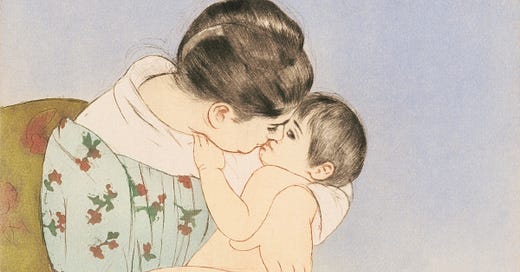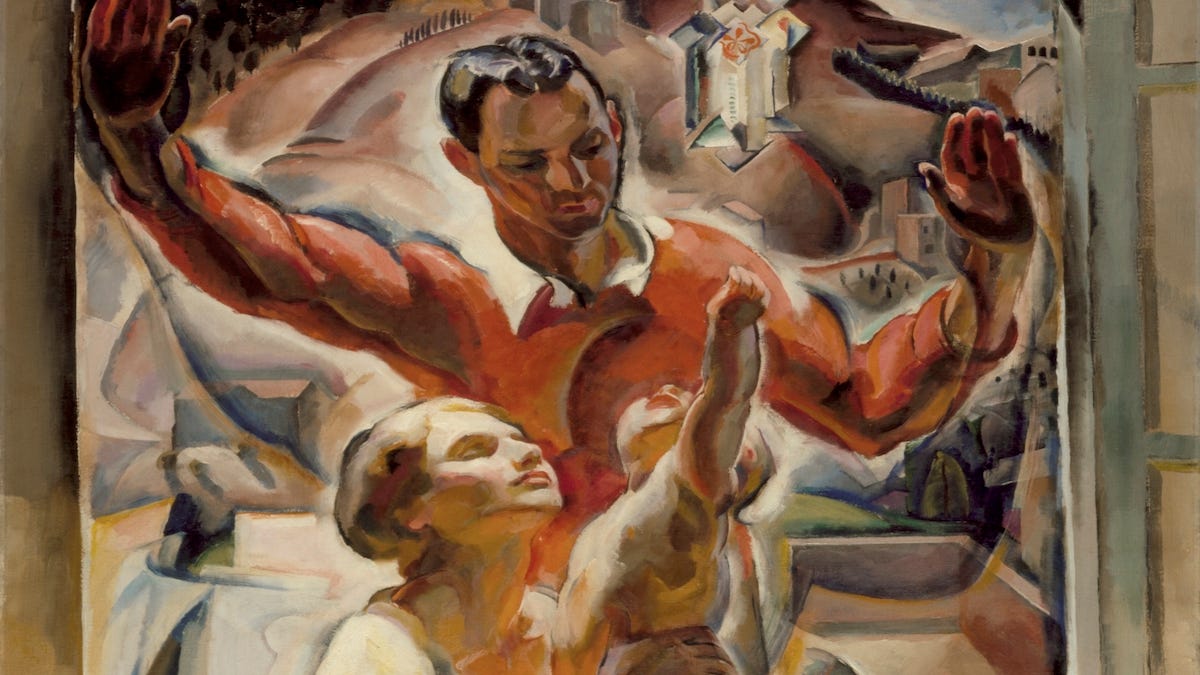Is motherhood at cross-purposes with creativity and ambition? In our original this week, Jessica Hooten Wilson reviews a new book by Catherine Ricketts that asks this question.
Shining a Light on Mother Artists
Jessica Hooten Wilson
Picking up the book, I did not expect the conversation to be so intimate. But the author has zoomed in on the body of mothers to uplift the uniqueness offered via their embodiment. Her probing question: how does making human life in the ways that mothers do affect their creative making as artists?
Ricketts walks the reader through conception, pregnancy, nursing, and the other physical experiences of mothering, considering how the mother’s body has been understood in relationship to art. “In the history of art, we’re flooded with images that idealize the human figure,” Ricketts writes. We only need to think of Michelangelo’s David or the Venus de Milo statue to register her point. Rarely do we see mom bods. This book explores the mothering body closely (sometimes too close for my taste) and shares images from artists’ work that narrows in and blows up those images for effect.
Ricketts rightly observes that women share birth stories the way that men tell war stories. “No language can quite convey the sensory cataclysm that is childbirth, but poetry might be the best tool we have for it. After all, how does any woman remember those bewildering hours but slant?”
This Week: Dads, Internet Patriarchy, and Whether Motherhood Transforms
This week: Jason S. Carroll on why we need dads, Featured Author Mary Harrington on internet patriarchy, Anastasia Berg on motherhood and transformation, breastfeeding, a gender whistleblower targeted, what Editor Serena Sigillito is reading—and more!
From the Archives:
In honor of Father’s Day, this piece from our archives celebrates the importance of fathers—and why marriage matters for fathers. (And many congratulations to Featured Author Leah Libresco Sargeant on her newest arrival!)
Father is Not a Part-Time Job
Leah Libresco Sargeant
“Men need to know what they can uniquely contribute to their family. The abiding presence of a father isn’t replaceable by their paycheck, their banked sperm, or their weekend visits. Men and women both are impeded in knowing themselves and the full potential of their relationship when fathers are treated as trivial.”






